According to a recent survey from Public Policy Polling, President Donald Trump and Senator Thom Tillis continue to lose support in North Carolina. This is not necessarily a new trend, as past polls from the company have also shown Republican support waning in the state.
Trump’s disapproval rate has skyrocketed to 51% after winning the state by 4 points in 2016. Voters are also evenly split at 48% on the subject of impeachment as the House of Representatives continues their inquiry.
Tom Jensen, director of Public Policy Polling, spoke with WCHL’s Aaron Keck about what the results mean. He said Trump’s lower approval rating is consistent across most states his company has polled and point to the 2020 election being a ruling on Trump, no matter the eventual Democratic candidate.
“I think that it is going to come down to a referendum on [Trump],” Jensen said. “I think a lot of these Democrats as they become better known, like Pete Buttigieg and Kamala Harris, may start polling a little bit better with direct polling matchups with Trump given his unpopularity.”
Polled against the five leading Democratic candidates, Trump trails Joe Biden, Elizabeth Warren and Bernie Sanders, while he is tied with Harris and has a slight lead over Buttigieg. This is especially significant considering the only Democrat to win the state since 1980 was former president Barack Obama.
The poll showed Senator Thom Tillis is even less popular with North Carolina voters, with his approval rating dropping to 22% and his disapproval rating at 44%. Even among Republicans, only 40% of voters approve of Tillis.
Jensen said what points to trouble for Tillis in his senate race is his low approval rating among Republican voters, which is 40 percent. He says these numbers display why primary challengers to Tillis have received such early support.
“So, he’s sort of weak even within his own party and certainly not very strong support from either Democrat [voters] or Independents,” said Jensen.
Voters in the state also continue to show strong support across the aisle for nonpartisan redistricting along with Medicaid expansion.
North Carolina holds its primaries on March 3.
Related Stories
‹
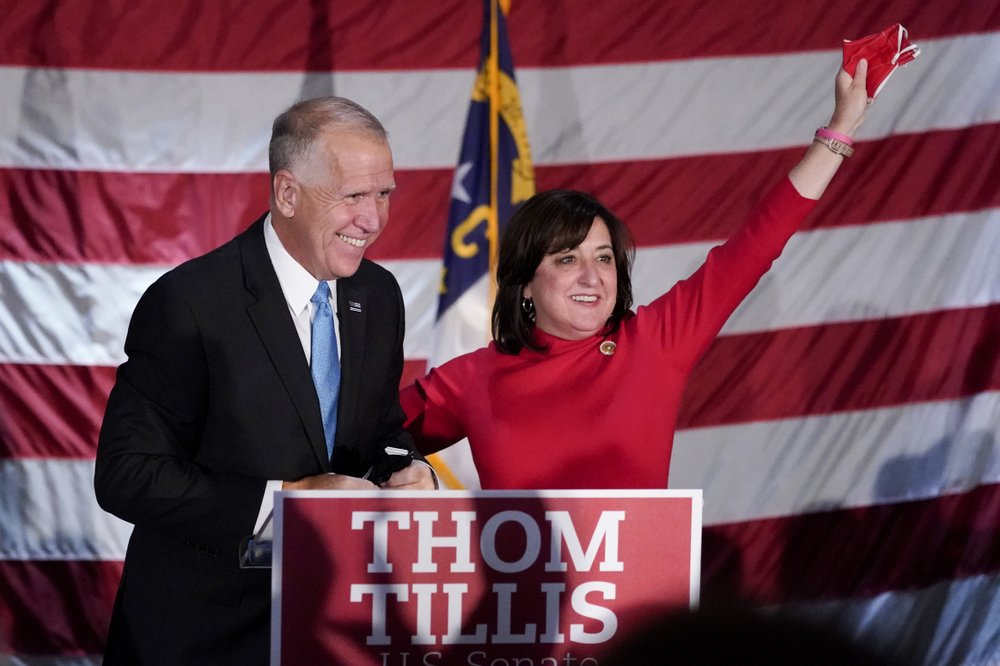
North Carolina Sen. Tillis Reelected, Keeps Seat for GOPNorth Carolina Republican Thom Tillis has won reelection to his U.S. Senate seat, confirming that Democrats must now win both runoff races in Georgia in January if they are to seize Senate control from the GOP. Tillis earned a second Senate term by defeating Democrat Cal Cunningham, whose campaign outraised Tillis during 2020. As of […]
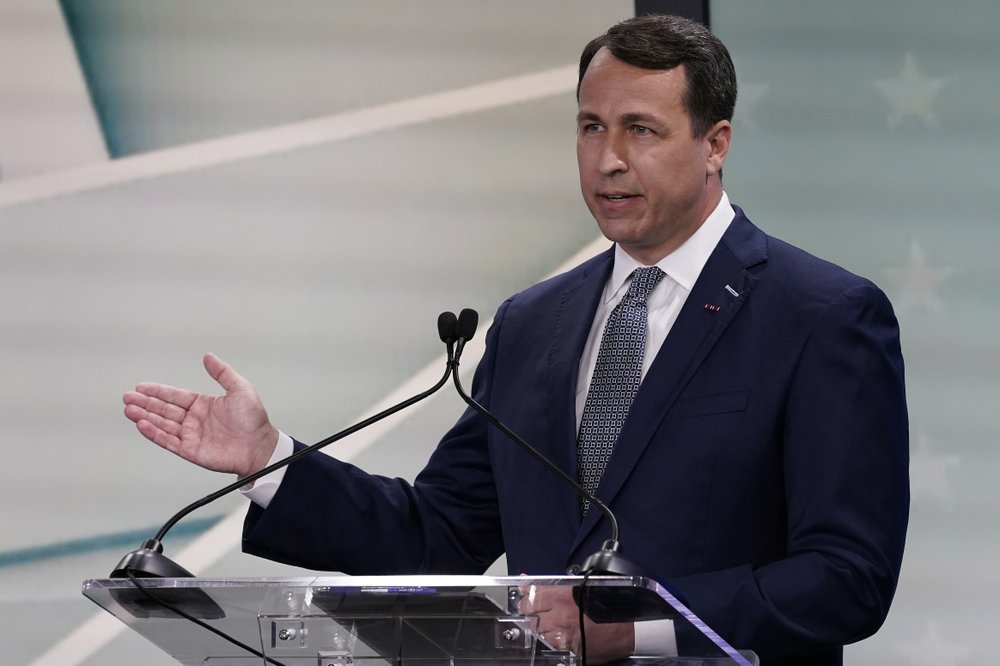
Cal Cunningham Concedes to U.S. Sen. Thom Tillis in NCDemocrat Cal Cunningham conceded to incumbent Republican U.S. Sen. Thom Tillis in North Carolina on Tuesday, saying “the voters have spoken” and it was clear Tillis had won. With Cunningham’s concession, all eyes turned to Georgia, where two U.S. Senate runoff races in January are likely to determine the balance of the upper chamber. With […]
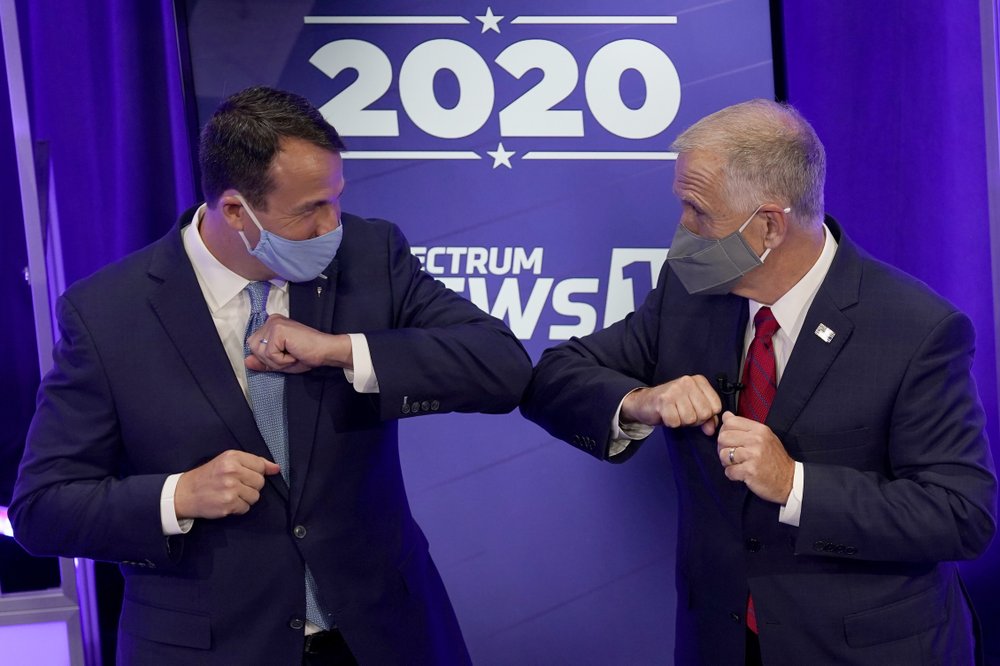
North Carolina Voters Decide Most Expensive Senate RaceNorth Carolina voters are choosing between a Republican U.S. senator and Donald Trump ally who has been criticized for voting to repeal the Affordable Care Act, and a Democratic challenger who admitted in the campaign’s final weeks to sending sexually suggestive texts to a woman not his wife. Tuesday’s contest between Sen. Thom Tillis and […]
![]()
Could North Carolina Turn Blue? Local Election Expert Says YesWith Election Day in full swing, 97.9 The Hill’s Aaron Keck spoke with Tom Jensen, the Director of Public Policy Polling, about what to expect in North Carolina as the final ballots are submitted and election results roll in Tuesday night. In the days leading up to the election, Jensen said he’s seen a pretty […]
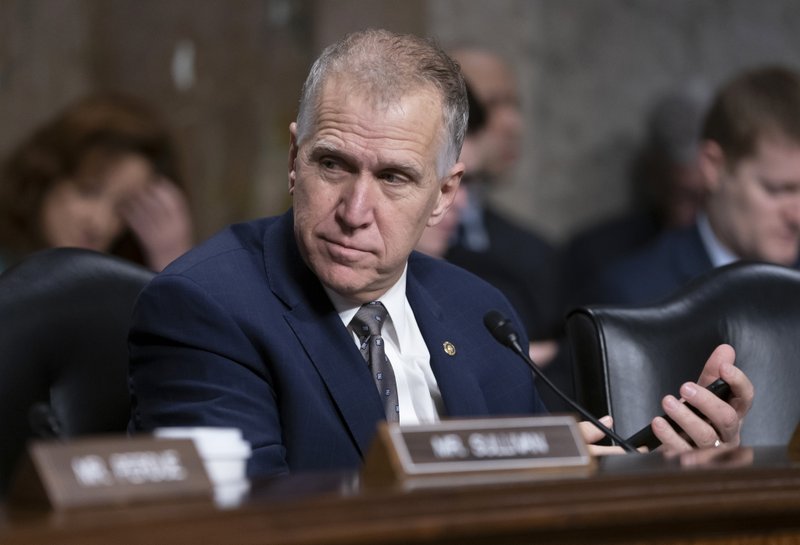
Tillis, Cunningham Meet for 1st Televised NC Senate DebateNorth Carolina Republican Sen. Thom Tillis and Democratic challenger Cal Cunningham are meeting for their first televised debate in a campaign whose outcome could determine which party controls the Senate. Cunningham and Tillis have agreed to three debates, the first of which will air live Monday evening from the Raleigh TV station WRAL. Tillis is […]
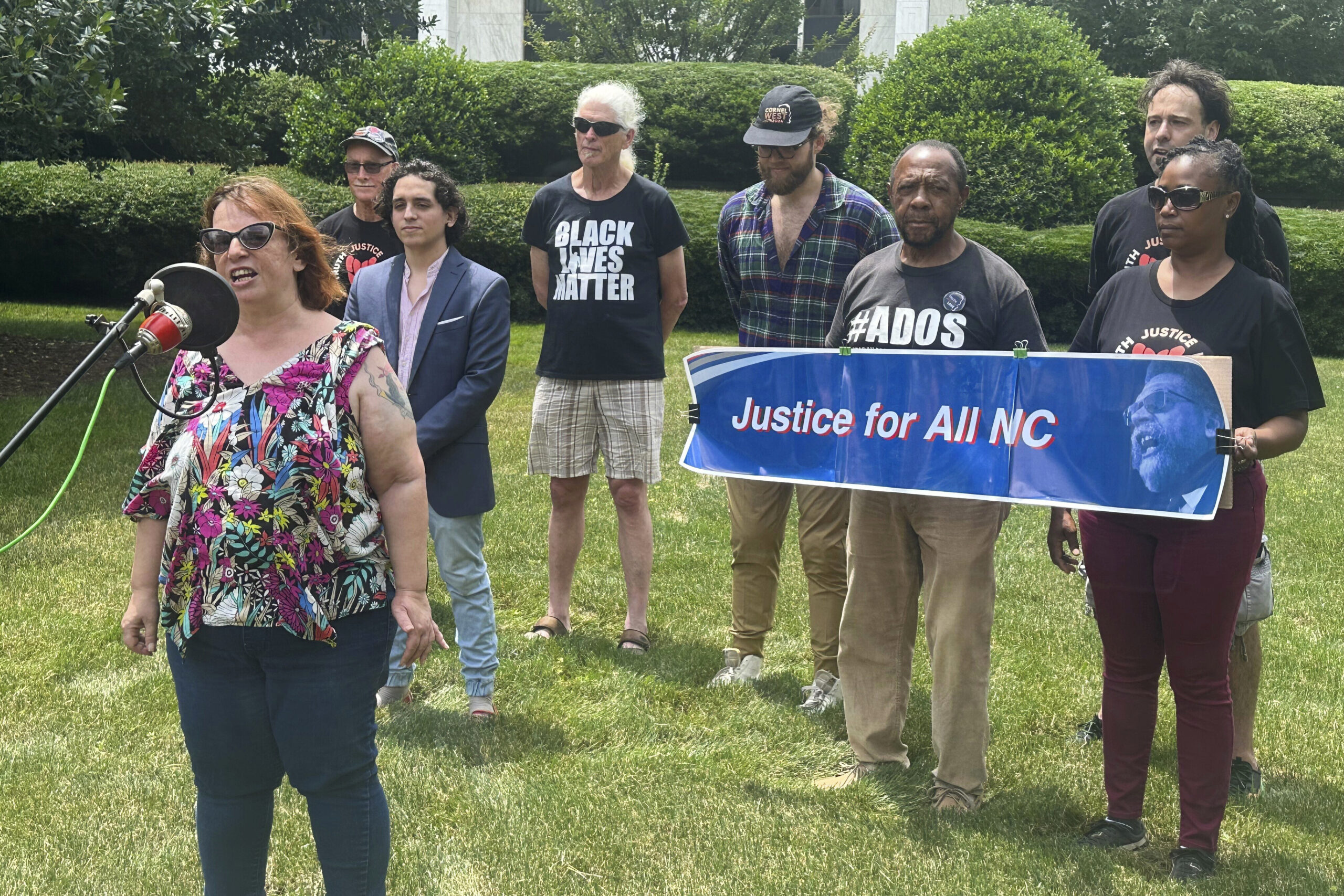
More Presidential Candidates Could Be on North Carolina Ballot With Signature DrivesThree political movements seeking to run presidential candidates in North Carolina filed voter signature lists before Monday's deadline.
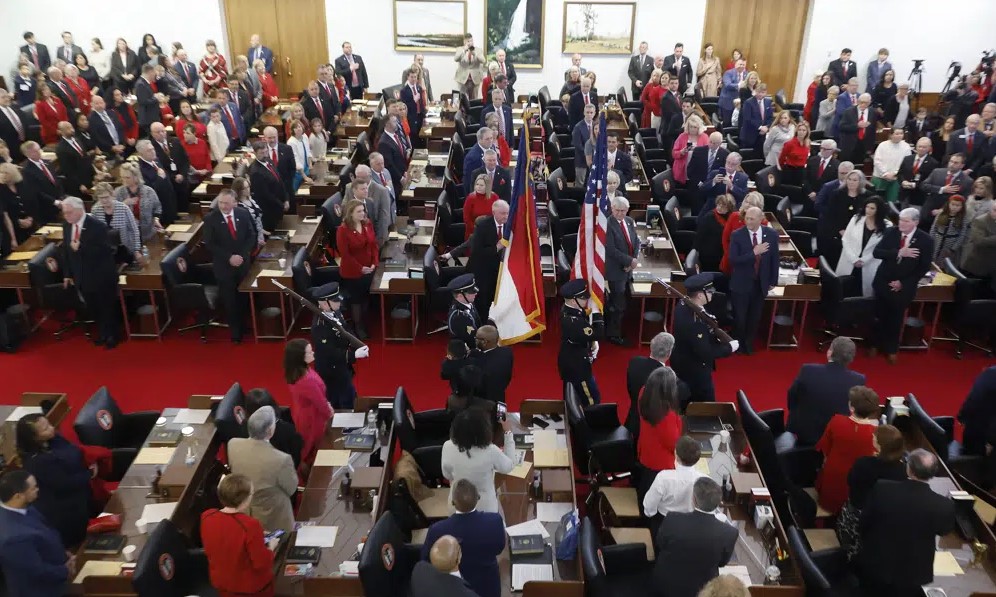
'A Pretty Unpopular Move': What Polls Tell Us About NC's Abortion RestrictionsTom Jensen, the director of Public Policy Polling, took some time to chat with 97.9 The Hill’s Aaron Keck on Monday morning. Jensen and Keck discussed the potential 12-week abortion restriction in North Carolina, partisan gerrymandering and looked ahead to the 2024 presidential election. Check out highlights of the interview below, which have been lightly […]
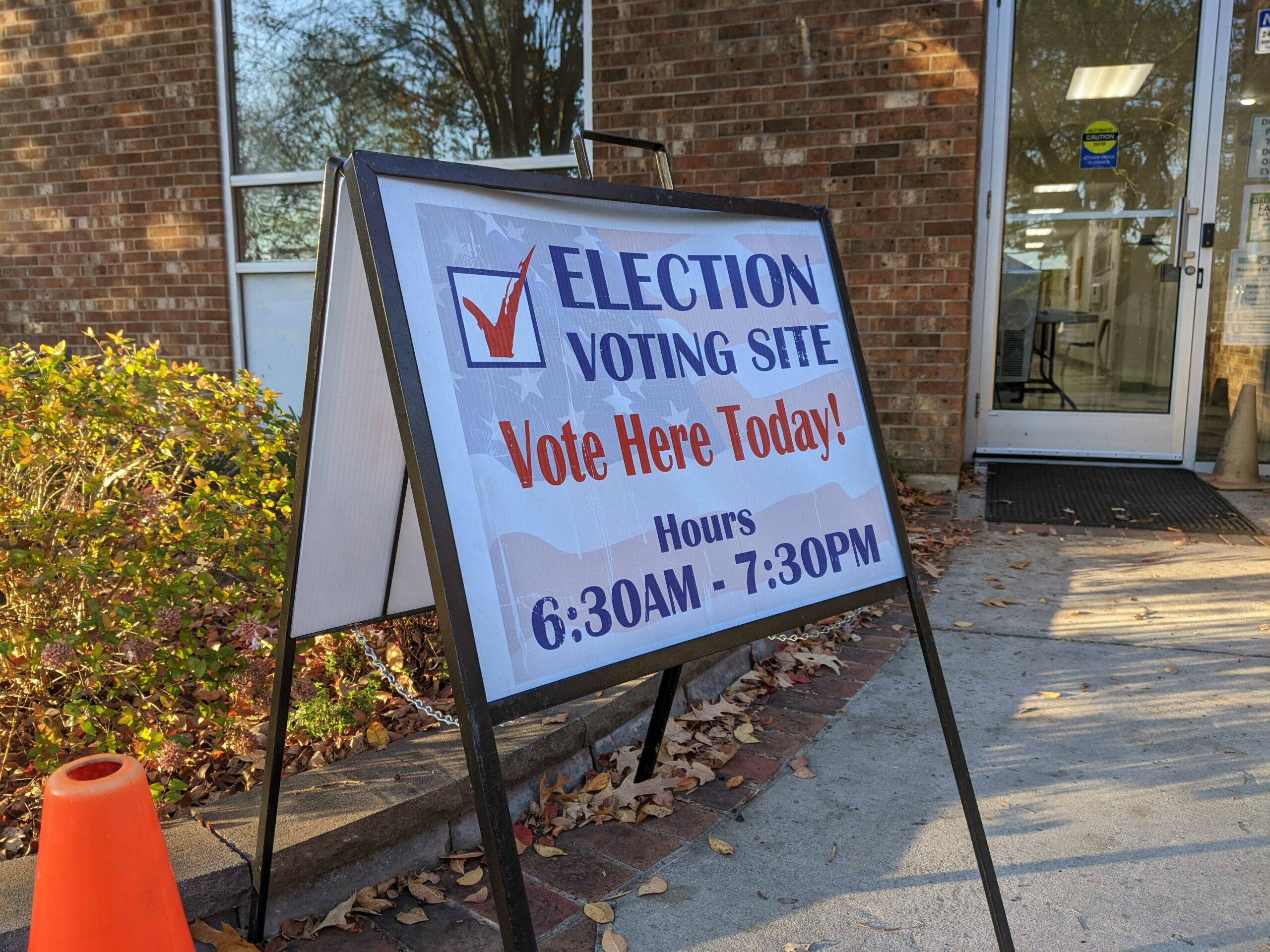
2022 Midterm Suggests Future Turnout Edge for Democrats - With Key ExceptionsElection observers say the 2022 midterm hints at a structural turnout advantage for Democrats - but not necessarily in North Carolina.
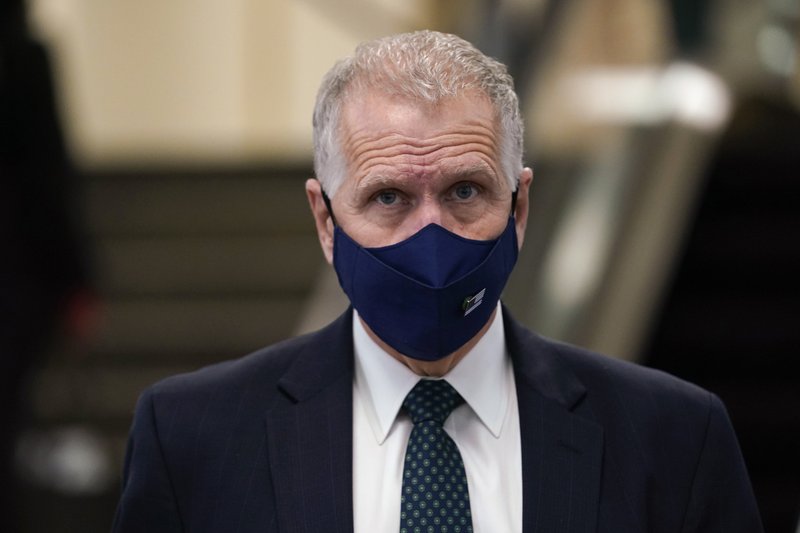
Sen. Thom Tillis Says He'll Have Surgery for Prostate CancerWritten by BRYAN ANDERSON Sen. Thom Tillis said Monday that he has prostate cancer and will undergo surgery next week in North Carolina to treat it. “I am in the hands of outstanding medical professionals and expect to make a full recovery,” the Republican said in a statement. He said the cancer was detected relatively early. […]
![]()
Senate Democrats Pitch Bills To Expand Voting Access in NCWritten by GARY D. ROBERTSON North Carolina Senate Democrats will soon offer bills to expand access to voting — a contrast to a new proposal by Republican colleagues on absentee voting that would restrict it, the Democrats said on Thursday. The Democrats announced they plan to file legislation that would make voter registration of eligible […]
›









